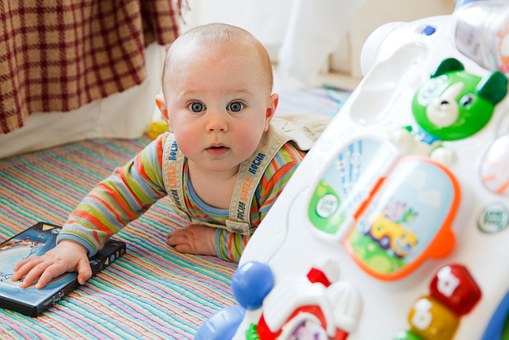Developmental psychology studies changes that occur in an individual over time. These changes can be physical, social or emotional. Developmental psychologists have an interest in studying individuals of all ages, so developmental studies consider old age as well as focusing on the early development of a child. Development is a lifelong process and so this approach is sometimes referred to as the lifespan approach.
Developmental psychology draws on research from other areas of psychology, and this is also reflected in a considerable overlap of various research methods and techniques.  The aims of developmental psychology are to describe, explain and optimise development across the lifespan.
The aims of developmental psychology are to describe, explain and optimise development across the lifespan.
The origins of Developmental Psychology
Arguably, Charles Darwin conducted the first developmental study when in 1877 he published a paper about the development of innate forms of communication in his infant son, Doddy. A few years later, in Germany, Wilhelm Preyer published The Mind of the Child in which, as with Darwin, he used his own child as the subject of research. In the 20th Century, the discipline was dominated by three developmental psychologists: Jean Piaget (1896-1980), Lev Vygotsky (1896-1934), and John Bowlby (1907-1990). The first major theorist to note the lifelong nature of development was Erik Erikson. He referred to development as being from 'cradle to grave', and described what he saw as the Eight Stages of Man.
Processes of Development
Piaget's Stage Theory
Jean Piaget was perhaps the earliest psychologist to suggest that all individuals progress through stages of development. Such a universalist approach suggests a typical path of development that everyone must develop through in order to become a 'normal' adult. Stages are chronological and therefore one stage must be completed before the next can be attained. Another famous example of stages in psychology is Abraham Maslow's Hierarchy of Needs.
Vygotsky's Scaffolding and Social Contextualism
In a development on straight stage theory, Lev Vygotsky forwards a theory of development that requires 'developed' adults to assist 'developing' children to the next stage of development. Adults use social cues and interactions to help a child learn and develop. Vygotsky's work has been applied to language acquisition as well as other behaviours.  Vygotsky specifically advised that adults assist a child when the child approaches a 'zone of proximal development', that is to say that the child is very close to achieving the next developmental stage already. Development ought to be led by the child, at his or her own pace.
Vygotsky specifically advised that adults assist a child when the child approaches a 'zone of proximal development', that is to say that the child is very close to achieving the next developmental stage already. Development ought to be led by the child, at his or her own pace.
Bandura's Social Learning Theory
In a departure from behaviourism, Albert Bandura discovered that children learn behaviours via a process of vicarious learning, even without any apparent conditioning. The theory of social learning proposes that behaviours are learned when a child observes another person performing a set behaviour. These behaviours are witnessed, retained in memory, and in time they are repeated by the developing child.
Areas of Interest to Developmental Psychologists
Attachment
From the moment we are born, developmental psychologists are interested in researching our attachments with primary care givers and strangers. For example, Schaffer and Emerson (1964) present four stages of attachment to explain how infants build attachments with primary care givers and others in their first year.
Emotions
Our understanding and control of our emotions develop and change throughout our life.
Intelligence
Intelligence is not a static trait, and therefore developmental psychologists are interested in researching how intelligence develops as well as more intrinsic questions of what intelligence actually is.
Cognitive Development
Developmental psychology doesn't operate in a vacuum and this is an example of an overlap in research interests with cognitive psychology research.
Language
One of the most fascinating areas of human development is the onset of language. How do we learn language? What are the processes by which we develop language? And what are the consequences of language on further development?
Moral Development
Piaget's stage theory suggests that children younger than 7 don't yet have any concept of morals, and it perhaps isn't until an individual's teenage years that they develop a more complex moral framework.
Development of Self
How do we recognise and understand our own self at different points in our life. Is our sense of self constant or dynamic?
Relationships
Throughout the lifespan we experience a wide range of different relationships. With authority figures such as teachers, with friends, with lovers, with our children and so on. How do our relationships develop across the lifespan, and how do the relationships affect development themselves?
Ageing
With an increasingly ageing population, developmental psychology has begun to shift more attention to the latter end of life in order to understand more about the changes that affect us as we grow old. 
Academic Articles about Developmental Psychology
- Click here to read a journal article on the history of the lifespan approach to developmental psychology, published in the Annual Review of Psychology (1999), which provides a very comprehensive account of the approach with lots of references to interesting studies. (30 pages)
